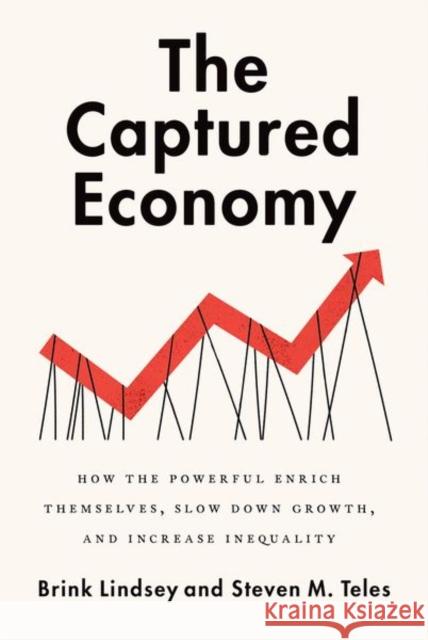The Captured Economy: How the Powerful Enrich Themselves, Slow Down Growth, and Increase Inequality » książka
The Captured Economy: How the Powerful Enrich Themselves, Slow Down Growth, and Increase Inequality
ISBN-13: 9780190627768 / Angielski / Twarda / 2017 / 232 str.
The Captured Economy: How the Powerful Enrich Themselves, Slow Down Growth, and Increase Inequality
ISBN-13: 9780190627768 / Angielski / Twarda / 2017 / 232 str.
(netto: 102,58 VAT: 5%)
Najniższa cena z 30 dni: 101,69
ok. 16-18 dni roboczych.
Darmowa dostawa!
Economists have long taught that there is a tradeoff between efficiency and equity -- that is, between making a bigger pie and dividing it more fairly. This idea is what makes our current predicament so puzzling: today we are faced with both a stagnating economy and sky-high inequality. Both problems have many causes, but Brink Lindsey and Steven M. Teles argue that one cause-state action to entrench privilege by subverting market competition - is common to both. When the state assumes this role, the tradeoff between equity and efficiency no longer holds.
Over the past 40 years or so, important new regulatory barriers have shielded the powerful and privileged from the rigors of competition, thereby inflating their incomes -- sometimes to an extravagant degree. Lindsey and Teles document in detail four of the most important examples: subsidies for the financial sector's excessive risk taking, excessive protection of copyrights and patents, protection of incumbent businesses through occupational licensing, and the "Not In My Back Yard" (NIMBY)-led escalation of land use controls.
Freeing the economy from regressive regulatory capture will be difficult. Lindsey and Teles are realistic about the chances for reform, but they offer a set of promising strategies to improve democratic deliberation and open pathways for meaningful policy change. A powerful and original interpretation of the forces driving inequality and stagnation, The Captured Economy will be necessary reading for anyone concerned about America's mounting economic problems and the social tensions they are sparking.











